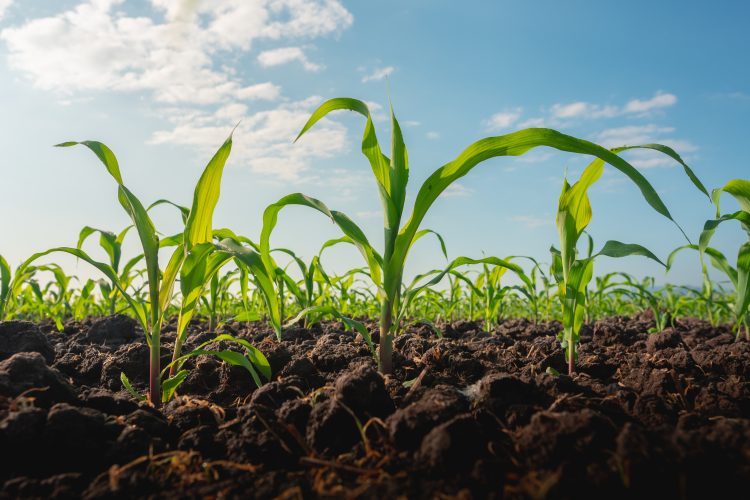Could applying medical nanotech to crops revolutionise farming?
- Like
- Digg
- Del
- Tumblr
- VKontakte
- Buffer
- Love This
- Odnoklassniki
- Meneame
- Blogger
- Amazon
- Yahoo Mail
- Gmail
- AOL
- Newsvine
- HackerNews
- Evernote
- MySpace
- Mail.ru
- Viadeo
- Line
- Comments
- Yummly
- SMS
- Viber
- Telegram
- Subscribe
- Skype
- Facebook Messenger
- Kakao
- LiveJournal
- Yammer
- Edgar
- Fintel
- Mix
- Instapaper
- Copy Link
Posted: 10 June 2024 | Grace Galler | No comments yet
Researchers from the University of California have argued that applying nanotechnology to agriculture may help growers meet increasing global food demands.


According to a new study from the University of California, advanced technologies that allow for the precise delivery of medicine to specific cells in the body could also benefit agriculture.
Scientists have now proposed that these technologies are crucial for growers to meet the increasing global food demands.
The study was published in the Nature Nanotechnology journal and was written by researchers from UC Riverside and Carnegie Mellon University. The paper highlights some of the best-known strategies for improving agriculture with nanotechnology.
But what is nanotechnology exactly? Well researchers define it as an “umbrella term for the study and design of microscopically small things”, as a nanometer is one billionth of a meter, or about 100,000 times smaller than the width of a human hair.
While using nanotechnology, drugs can now be delivered where they’re most needed, these insights have yet to be applied to plant science on a large scale.
“There are studies predicting we will need to increase food production by up to 60% in 2050 relative to 2020 levels. Right now, we are trying to do that through inefficient agrochemical delivery,” said Juan Pablo Giraldo, UCR Associate Professor and paper co-corresponding author.
“Half of all the fertilizer applied on farms is lost in the environment and pollutes the groundwater. In the case of commonly used pesticides, it’s even worse. Only 5 percent reach their intended targets. The rest ends up contaminating the environment. There is a lot of room for improvement,” continued Giraldo.
In 2024, agriculture accounts for up to 28 percent of global greenhouse gas emissions, according to the study authors. In addition to a range of other factors from extreme weather events to rampant crop pests and rapidly degrading soil, the research team believes this underlines the need for new agricultural practices and technologies.
USDA allocates $300 million to diversify US agriculture export markets
As part of their review, the scientists shed light on specific approaches borrowed from nanomedicine that could be used to deliver pesticides, herbicides, and fungicides to specific biological targets.
“We are pioneering targeted delivery technologies based on coating nanomaterials with sugars or peptides that recognize specific proteins on plant cells and organelles,” explained Giraldo
“This allows us to take the existing molecular machinery of the plant and guide desired chemicals to where the plant needs it, for example the plant vasculature, organelles, or sites of plant pathogen infections.”
Experts share that this approach has the potential to enhance plant resilience to disease and environmental factors such as extreme heat and high soil salinity. They also claim it may also offer a more environmentally friendly method with reduced off-target effects.
Another strategy discussed in the paper is using artificial intelligence and machine learning to create a “digital twin.” Medical researchers use computational models or “digital patients” to simulate how medicines interact with and move within the body. Plant researchers can do the same to design nanocarrier molecules that deliver nutrients or other agrochemicals to plant organs where they’re most needed.
“It’s like J.A.R.V.I.S. (Just A Rather Very Intelligent System) from the film Iron Man. Essentially an artificial intelligence guide to help design nanoparticles with controlled delivery properties for agriculture,” Giraldo said.
“We can follow up these twin simulations with real-life plant experiments for feedback on the models.”
“Nano-enabled precision delivery of active agents in plants will transform agriculture, but there are critical technical challenges that we must first overcome to realize the full range of its benefits,” said Greg Lowry, Carnegie Mellon engineering professor and co-corresponding author of the review paper. “I’m optimistic about the future of Plant Nanobiotechnology approaches and the beneficial impacts it will have on our ability to sustainably produce food.”








